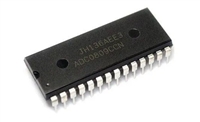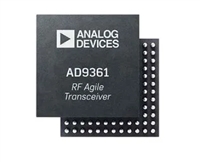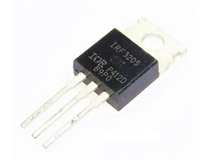A29L161A Series
ICC2 in the DC Characteristics table represents the active
current specification for the write mode. The "AC
Characteristics" section contains timing specification tables
and timing diagrams for write operations.
Requirements for Reading Array Data
To read array data from the outputs, the system must drive
the
and
pins to VIL.
is the power control and
CE
OE
CE
selects the device.
is the output control and gates array
OE
data to the output pins.
Program and Erase Operation Status
should remain at VIH all the time
WE
During an erase or program operation, the system may
check the status of the operation by reading the status bits
on I/O7 - I/O0. Standard read cycle timings and ICC read
specifications apply. Refer to "Write Operation Status" for
more information, and to each AC Characteristics section for
timing diagrams.
during read operation. The internal state machine is set for
reading array data upon device power-up, or after a
hardware reset. This ensures that no spurious alteration of
the memory content occurs during the power transition. No
command is necessary in this mode to obtain array data.
Standard microprocessor read cycles that assert valid
addresses on the device address inputs produce valid data
on the device data outputs. The device remains enabled for
read access until the command register contents are altered.
See "Reading Array Data" for more information. Refer to the
AC Read Operations table for timing specifications and to the
Read Operations Timings diagram for the timing waveforms,
lCC1 in the DC Characteristics table represents the active
current specification for reading array data.
Standby Mode
When the system is not reading or writing to the device, it
can place the device in the standby mode. In this mode,
current consumption is greatly reduced, and the outputs are
placed in the high impedance state, independent of the
input.
OE
The device enters the CMOS standby mode when the
CE
pin is both held at VCC ± 0.3V. (Note that this is a more
restricted voltage range than VIH.) If are held at VIH, but
not within VCC ± 0.3V, the device will be in the standby
mode, but the standby current will be greater. The device
requires the standard access time (tCE) before it is ready to
read data.
Writing Commands/Command Sequences
CE
To write a command or command sequence (which includes
programming data to the device and erasing sectors of
memory), the system must drive
and
to VIL, and
CE
WE
to VIH. The device features an Unlock Bypass mode to
OE
facilitate faster programming. Once the device enters the
Unlock Bypass mode, only two write cycles are required to
program a word or byte, instead of four. The “
If the device is deselected during erasure or programming,
the device draws active current until the operation is
completed.
ICC3 in the DC Characteristics tables represent the standby
current specification.
Program Command Sequence” section has details on
programming data to the device using both standard and
Unlock Bypass command sequence. An erase operation can
erase one sector, multiple sectors, or the entire device. The
Sector Address Tables indicate the address range that each
sector occupies. A "sector address" consists of the address
inputs required to uniquely select a sector. See the
"Command Definitions" section for details on erasing a sector
or the entire chip, or suspending/resuming the erase
operation.
After the system writes the autoselect command sequence,
the device enters the autoselect mode. The system can then
read autoselect codes from the internal register (which is
separate from the memory array) on I/O7 - I/O0. Standard
read cycle timings apply in this mode. Refer to the
"Autoselect Mode" and "Autoselect Command Sequence"
sections for more information.
Automatic Sleep Mode
The automatic sleep mode minimizes Flash device energy
consumption. The device automatically enables this mode
when addresses remain stable for tACC +30ns. The automatic
sleep mode is independent of the
,
and
control
OE
WE
CE
signals. Standard address access timings provide new data
when addresses are changed. While in sleep mode, output
data is latched and always available to the system.
Output Disable Mode
When the
input is at VIH, output from the device is
OE
disabled. The output pins are placed in the high impedance
state.
PRELIMINARY (March, 2006, Version 0.0)
5
AMIC Technology, Corp.






 SI2301 N沟道MOSFET:资料手册参数分析
SI2301 N沟道MOSFET:资料手册参数分析

 ADC0809逐次逼近寄存器型模数转换器:资料手册参数分析
ADC0809逐次逼近寄存器型模数转换器:资料手册参数分析

 AD9361捷变收发器:全面参数解析与关键特性概览
AD9361捷变收发器:全面参数解析与关键特性概览

 IRF3205功率MOSFET:资料手册参数分析
IRF3205功率MOSFET:资料手册参数分析
